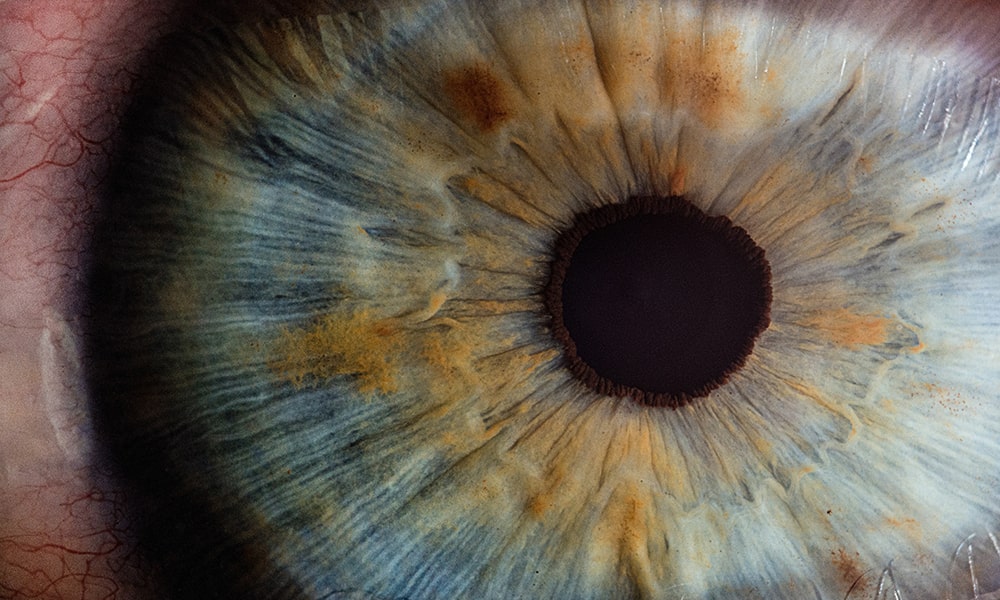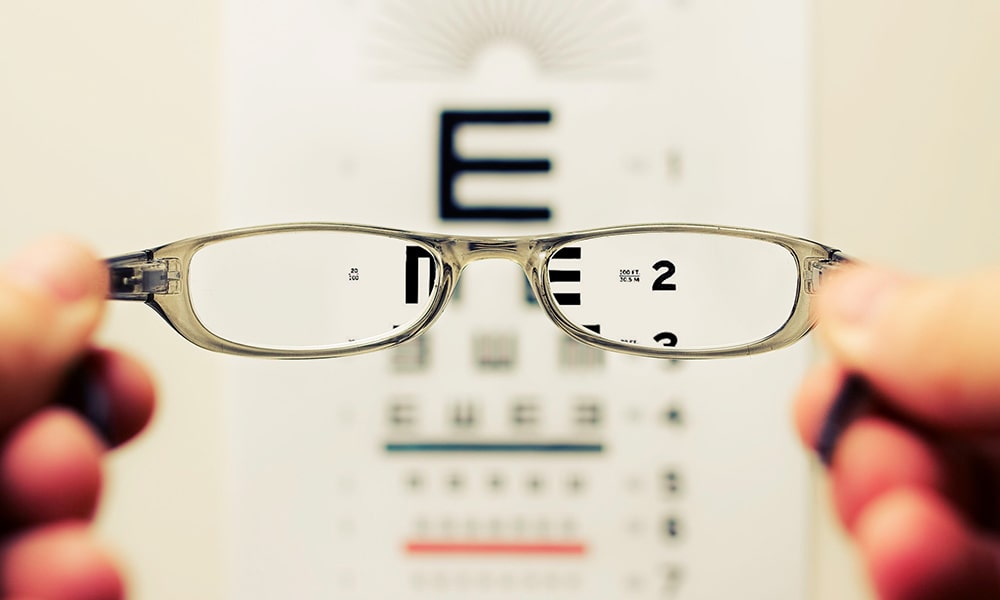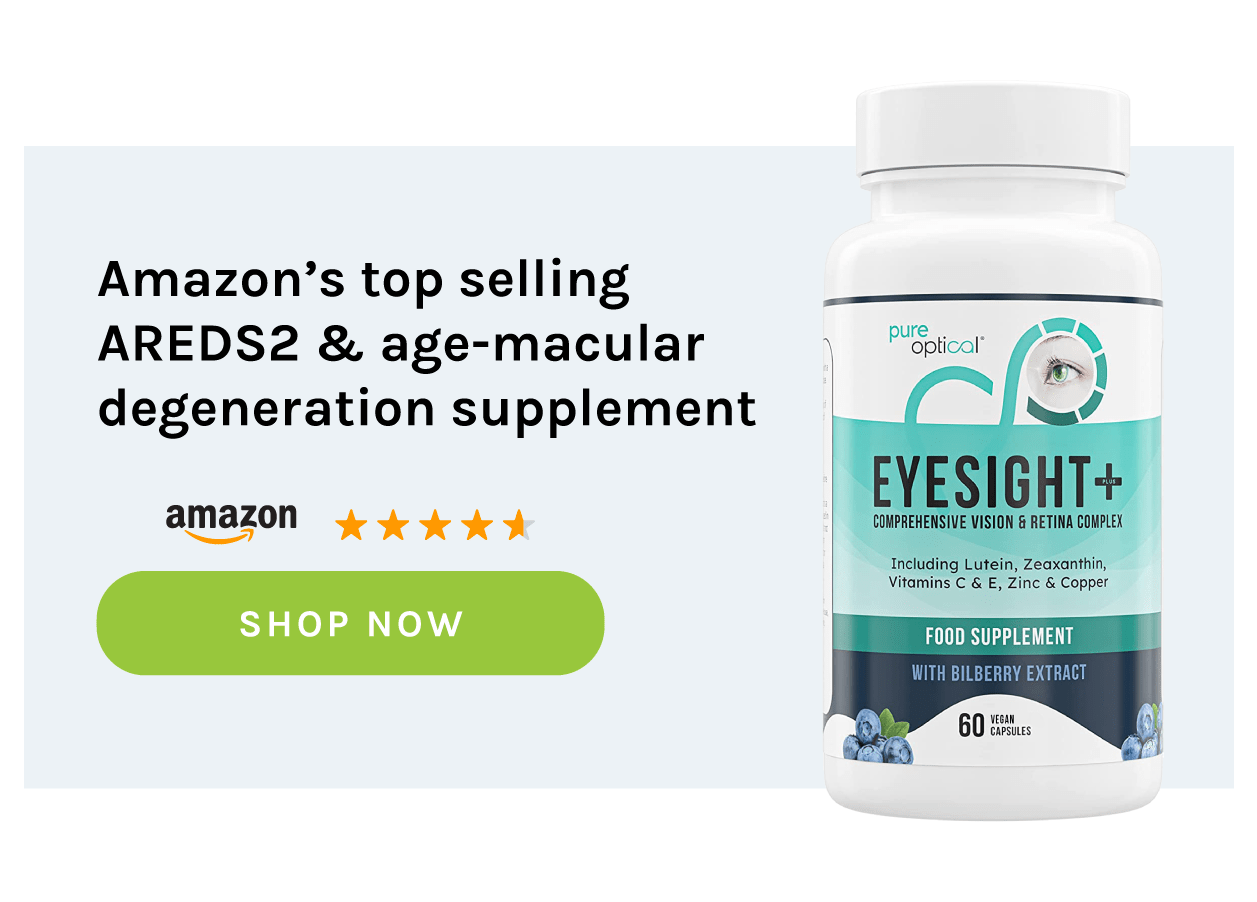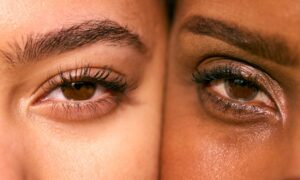Macular degeneration, often known as age-related macular degeneration (AMD), is a common eye condition and a leading cause of vision loss in individuals over the age of 50. The macula, a small central area of the retina, deteriorates over time, leading to a gradual loss of central vision.
In this article, we delve into the symptoms of this condition and explore some of the remedies and preventative measures available.

Understanding the macula
To fully appreciate the symptoms of AMD, one must first understand the significance of the macula. The macula is responsible for central vision, which enables us to read, recognise faces, drive, and perform other detailed tasks. A deteriorating macula, therefore, affects our ability to see objects directly in front of us.
Types of macular degeneration
There are primarily two types of AMD:
- Dry AMD (atrophic): This is the most common form and is characterized by the presence of small yellow deposits, called drusen, under the macula. As these drusen grow in number and size, they can lead to a gradual deterioration of the cells of the macula, resulting in vision loss.
- Wet AMD (neovascular): This is less common but is more severe. It occurs when abnormal blood vessels grow beneath the retina and leak fluid or blood. This leakage can cause scarring of the macula, leading to more rapid vision loss than the dry form.
Key symptoms of macular degeneration
Understanding the symptoms of AMD can aid in early detection and intervention, thereby potentially slowing its progression. Here are the key symptoms associated with the condition:
- Blurred or reduced central vision: This is one of the first warning signs of AMD. It may become more challenging to see fine details, both up close (like threading a needle) and at a distance (like recognising faces).
- Distorted vision: Straight lines might appear bent or wavy. This can be especially noticeable when looking at things like door frames or the lines of a piece of paper.
- Dark or blank areas in the center of vision: This is often a sign of more advanced AMD.
- Changes in color perception: Objects might appear less bright or vibrant than they used to, or colors might seem different from one eye to the other.
- Difficulty adapting to low light levels: For example, entering a dimly lit room might pose challenges, or it may become increasingly difficult to drive at night.
- Issues with recognising faces: This can be distressing for many and highlights the significance of central vision loss.

Preventing AMD
Several factors can increase one’s risk of developing AMD. These include age, genetics, smoking, and prolonged exposure to UV light. A healthy lifestyle, which includes a balanced diet, regular exercise, and protection from excessive sunlight, can help reduce the risk. Additionally, high antioxidant intake has been suggested to be beneficial for eye health.
Eye supplements
This is where products like AREDS 2 Vitamins for Eyes come into play. These vitamins are specifically designed based on the Age-Related Eye Disease Study 2 (AREDS2) findings, which demonstrated that certain nutrients – including zinc, copper, vitamin C, vitamin E, and specific carotenoids – can reduce the risk of AMD progression by about 25%. Therefore, incorporating these vitamins into your daily regimen, especially if you are at risk, might offer some protective benefits against the condition.
Seeking professional advice
If you or someone you know experiences any of the above symptoms or is at risk of developing AMD, it is crucial to seek the advice of an optometrist or ophthalmologist. Regular eye exams, especially for those over 50, can help detect early signs of the disease, allowing for timely interventions and potentially preserving vision for longer.
Advanced treatments and therapies
While there is no cure for AMD, various treatments can slow its progression or improve the quality of life:
- Anti-VEGF injections: For wet AMD, these injections can help reduce the growth of abnormal blood vessels that cause the rapid form of vision loss.
- Lazer therapy: This treatment can destroy actively growing abnormal blood vessels in some cases of wet AMD.
- Visual aids: Magnifiers, large-print books, and screen readers can assist those with vision loss in their daily activities. Specialized training, called low vision therapy, can teach patients to use these aids effectively.
- Diet and lifestyle: Beyond supplements, maintaining a diet rich in leafy greens, fish, and other nutrient-dense foods can be beneficial. Quitting smoking and managing cardiovascular health can also play a significant role in slowing AMD’s progression naturally.
The impact of macular degeneration on daily life
The symptoms of macular degeneration can significantly influence a person’s daily life. The condition’s gradual progression means that the impact on one’s routines and activities might not be immediately evident. However, over time, the limitations become more pronounced.
- Reading and writing: As the central vision deteriorates, many individuals with AMD find it increasingly difficult to read books, newspapers, or even digital screens. Writing, too, can become a challenge.
- Driving: A diminished central vision can compromise one’s ability to drive safely, especially at night or in dim light. Some people with AMD might need to give up driving altogether, depending on the severity of their vision loss.
- Recognizing people and facial expressions: Human interaction is vital for emotional well-being. However, the inability to recognize familiar faces can be distressing and may result in reduced social interactions.
- Household chores: Everyday tasks such as cooking, cleaning, or even sorting out laundry can become cumbersome due to impaired color perception and central vision.
- Hobbies: Activities such as sewing, painting, and other detailed hobbies may become difficult or less enjoyable.

The emotional toll of macular degeneration
Beyond the physical limitations, AMD can take a considerable emotional toll. Feelings of frustration, depression, and anxiety are common among those diagnosed. It’s essential for patients to seek emotional and psychological support, whether through counseling, support groups, or connecting with others experiencing the same challenges.
The role of research
Ongoing research in the field of ophthalmology is promising. Scientists are exploring potential treatments, including stem cell therapy, gene therapy, and even retinal implants, to combat the effects of macular degeneration. Participation in clinical trials or keeping informed about the latest advancements can offer hope to those affected by the condition.





